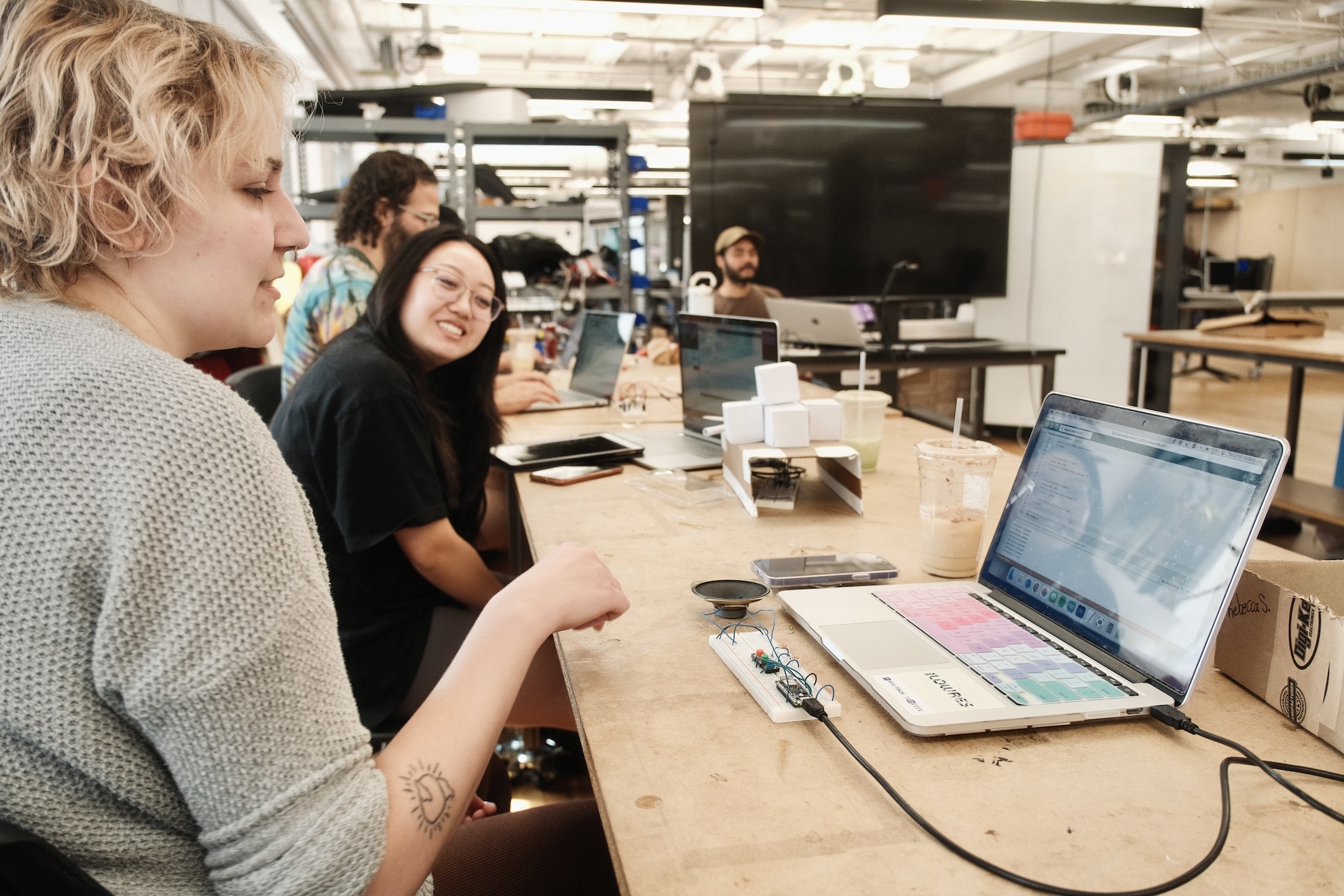The IMA Low Res curriculum has been designed specifically for students enrolled in the program by faculty from both ITP and IMA programs. These courses have been developed as a sequence that will iteratively build upon one another. During the summer intensive session in New York and the online session in Fall, all IMA Low Res students will take the same required courses. For the winter session in Berlin, the online session in Spring, and the summer session in Shanghai, students will have the flexibility to choose from a variety of elective courses.
Overview
| Session | Location | Credits | No. of courses | Length | Commitment |
|---|---|---|---|---|---|
| Summer I | New York | 9 | 5 | 5 weeks | Full-time |
| Fall | Remote | 7 | 2 | 14 weeks | Part-time |
| Winter | Berlin | 3 | 2 | 2-3 weeks | Full-time |
| Spring | Remote | 7 | 3 | 14 weeks | Part-time |
| Summer II | Shanghai | 6 | 4 | 5 weeks | Full-time |
Courses
Please note: Below is a sampling of classes that IMA Low Res has offered over the years. It is not a complete list, since our courses change every year.
If you are looking for more specific and up to date listings, please visit Albert and then click the “Public Course Search” button. You will find our listing under IMALR-GT – change the year and semester to see a historical log of courses.
Summer I
| Summer I | New York | 9 credits | 5 Courses | 5 Weeks | Full-time |
| Students establish core fundamentals in programming, electronics, data, interaction design, user experience, production and theory. Emphasis is placed on conceptual frameworks to facilitate critical engagement and practice-based research as well as an understanding of maker culture. | |||||
IMALR-GT 101 Concepts, Culture & Communication (2 credits)
An introduction to the concepts, questions, and terminology that encompass interactive media arts as it relates to creative expression and critical engagement. This course serves to establish a theoretical and cultural foundation to cultivate a common vocabulary for discussion, analysis and critique, inform creative practice, and foster a community of makers capable of thoughtful reflection, awareness and discourse.
IMALR-GT 102 Creative Coding (2 credits)
A hands-on introduction to programming and software engineering for creative applications. This course introduces and explores fundamental coding concepts, such as logic sequencing, data structures, data flow and event-driven interactions in the context of screen-based projects. Iterative assignments facilitate the development of a final creative code-driven experience. The course is designed for students from all levels of programming.
IMALR-GT 104 Interface Lab (2 credits)
This production course surveys alternative interfaces with an emphasis towards embodied interactions. Students get to consider how humans express themselves physically and how those physical expressions are converted, interpreted, and processed by our computers. Using aspects of physical computing and physical interaction design, students take a hands-on approach to designing interactive hardware and software interfaces. Areas covered include microcontrollers (Arduino), tangible interfaces, sensors, and computer vision.
IMALR-GT 106 Exploratory Making (2 credits)
In this class, students deploy exploratory making as a strategy for developing and better understanding their own creative practices. Through engagement with unfamiliar digital media tools and materials, students develop a tactile understanding of the relationship between form and content; learn to design and critique their own artistic processes and practice; and work through uncomfortable (yet common) moments in the process of making. Over the 5-week session, students have the opportunity to move from ideation to prototyping across new media and receive robust critique to guide future iterations of research and making.
IMALR-GT 105 Conversations New York (1 credit)
A class where the entire program gathers to engage in dialogue with local leaders drawn from across the fields of emerging media. Each week, special guests representing a variety of backgrounds and interests including artistic, commercial, non-profit, civic and academic, address a theme or topic related to the socio-technical landscape of New York City. Students are expected to engage in reading and writing assignments, class discussions, interactive exercises, site visits and collaborative presentations.


Fall
IMALR-GT 201 Connections Lab (4 credits)
From intelligent chat-bots and gif-sharing apps to social media platforms and virtual reality hubs, our world is infused with mediated networked systems for communication. In this course, students design and develop their own creative connected web applications. By working in teams to produce online experiences that bring people together in playful yet meaningful ways, students gain valuable insight into the inner-workings and implications of our connected world.
IMALR-GT 202 Critical Experiences (3 credits)
This course combines “critical making” and “user experience” to direct personalized practice-based research. Students engage in a variety of applied research exercises, readings, and ethnographic activities that will encourage thinking and prototyping across a range of media and materials. Specific subject matter depends on individual student interests, allowing for more personalized areas of focus.
Winter
| Winter | Berlin | 3 credits | 2 Courses | 2-3 Weeks | Full-Time |
| With the foundation on technical and research skills built in the past two sessions, students can now choose an elective course on a subject matter that interests them the most. | |||||
IMALR-GT 304 Conversations Berlin (1 credit)
A class where the entire program gathers to engage in dialogue with local leaders drawn from across the fields of emerging media. Each week, special guests representing a variety of backgrounds and interests including artistic, commercial, non-profit, civic and academic, address a theme or topic related to the socio-technical landscape of Berlin. Students are expected to engage in reading and writing assignments, class discussions, interactive exercises, site visits and collaborative presentations.
Elective Courses are subject to change every year.
Here’s a sample of courses from Winter 2024:
Elective Option 1: IMALR-GT 301 Civic Ecologies (2 credits)
Modern urban life is attached to a vast array of interconnected, material relations. Under the demands of global urbanization trends, cities increasingly dominate how critical components of global ecological systems flow and operate. Understanding these civic ecologies therefore graduates from an infrastructural curiosity, to a planetary priority. Using visits to energy, water, food, transport and communication system sites within the city of Berlin, this class undertakes a comparative study of global cities. Students research, represent, and create projects in response to the possibilities and limits of thriving environments for humans and others in globalized urban centers.
Elective Option 2: IMALR-GT 302 Radical Networks (2 credits)
This course critically engages with the communication and networking technologies we readily use for ourselves and our communities. Questions around the control of data, software, hardware and infrastructure are tied to larger themes of access, power, resilience and sustainability. An ethos of artistry and digital activism is infused throughout the course as students experiment with peer-to-peer networks, DIY methodologies and technologies of resistance.
Elective Option 3: IMALR-GT 303 Designing Games (2 credits)
Most social interactions can be seen as some sort of playful event, but games tend to be more specific, designed artifacts with rules, stories and mechanics. In this course, we will learn the basics of game design and game development as we create our own games in the Unity game engine. As we cover fundamental concepts such as core mechanics, balance, tutorial, economy, systems, role-playing, narrative, conflict and cooperation, we will see how games can also act as dynamic representations of life, and thus can provide social and political commentaries. From a technical standpoint, we will build up a solid basis in game development concepts such as object-oriented programming, vector math, procedural animation and sound design, as well play-testing and iterative feedback.
Elective Option 4: IMALR-GT 601 Live Bodies (2 credits)
This course explores audio-visual (A/V) spaces, using the body as a central motif for exploration. Set against the backdrop of the city, participants record and document both personal and observed physical forms. Through a mixture of guest artist-led sessions, site visits, and in-class exercises, students have an in-person introduction to somatic practices, A/V storytelling techniques and live performances. These experiences then are translated into TouchDesigner – a visual programming environment providing an introduction to craft tools for A/V performances and artistic expression. Throughout the course, various methodologies foster a critically engaged understanding of visual programming, A/V spaces, self-expression, real-time visual dynamics, and methods of creating immersive environments. The class concludes with a live A/V performance created by the students showcasing their explorations and experiments throughout the session.



Spring
| Spring | Remote | 7 credits | 3 Courses | 14 Weeks | Part-Time |
| In Spring, emphasis is placed on the development of personal thesis projects, the continued building of technical skills and creative practice. The Thesis course is mandatory, while students get to choose two elective courses, one for Weeks 1-7, and one for Weeks 8-14. | |||||
IMALR-GT 401 Thesis (3 credits)
This course is designed to help students conceptualize, define and implement their thesis project. A series of practical assignments, readings and structured activities complemented by presentations and feedback sessions facilitate the development of individual projects. The course also aims to provide space for technical skill building necessary to realize the project. Note, Thesis is designed as a sequence of two classes with this first class focused on creating the project and a second class offered in the Summer session focused on delivering and documenting the final project.
Elective Courses are subject to change every year.
Here’s a sample of courses from Spring 2024:
Elective Option 1: IMALR-GT 404 50 Days of Making (2 credits)
Iteration and its impact on the creative process is the theme of this class. Inspired by ITP’s “100 Days of Making”, this course involves 50 days of required, iterative, daily practice. Students identify a theme, idea or topic they would like to explore for the entire 7 weeks of the class and commit to making or producing a variation on that idea as well as posting social evidence of their work every day for 50 consecutive days. Project direction can focus on building, writing, drawing, programming, photographing, designing, composing or any form of creative expression. Class time is spent discussing students’ progress and reflecting on the creative journey.
Elective Option 2: IMALR-GT 405 Share Lab Studio (2 credits)
This 7-week class is an exercise in collective, collaborative creation. During the first 3 weeks, the class works together to cultivate, shape and agree upon a collective aspirational vision that can be represented through a creative experience. In the remaining weeks, students work in smaller teams to produce unique parts of the creative experience that will come together as a unified whole and represent the overarching collective vision of the class. Aspects of speculative design, world-building and community building are infused into class sessions, discussions, assignments and project work. The class culminates with a public sharing of the work along with a discussion on the process of creating as a distributed collective.
Elective Option 3: IMALR-GT 406 Recode (2 credits)
Recode provides students with an opportunity to revisit and review coding fundamentals, repair and refactor old coding projects, remix and reimagine existing projects, and ultimately reboot and recreate an algorithmically-driven project through code. The class is designed to accommodate a range of skill levels and is suitable for students wanting to gain greater comfort with code and computation as well as those interested in diving deeper into code-driven pathways or projects. For the final deliverable, students are tasked with reproducing a creative work from the past in code with their own stylistic flair. Examples and exercises are provided in JavaScript using the p5.js library. However, students are welcome to consult the instructor about working with another programming library, framework, or language with which they have interest or prior experience.
Elective Option 4: IMALR-GT 407 Live! (2 credits)
This course focuses on designing, developing and delivering multimedia live performances via a virtual platform. The class emphasizes the use of emerging technologies that allow for the unfolding of real-time interactions, dynamic visuals and compelling narratives. Students get tol look at various examples of both online and offline performative experiences, explore how we can apply the technologies we have learned to design performative systems, and discuss methods we can use to make our own performances come to life. Students are tasked to propose performative project ideas at the outset of the class and then develop their projects in the following weeks with support from the instructor, residents, and invited guests. The class culminates in a live-streamed event featuring solo and/or group performances by the students.
Elective Option 5: IMALR-GT 408 Time (2 credits)
Time is both fundamental and mysterious. From the 2000-year-old Antikythera Mechanism to modern atomic clocks, humans have long sought to understand temporal patterns in nature, and build mechanisms to measure, reflect and predict those patterns. The Low Res “Time” course follows in that long tradition, reflecting on the nature of time through a seven-week project to build a novel clock (literal or metaphorical, physical or virtual). Students extend their physical computing skills by taking a closer look at microcontrollers, including internal timing hardware and functions, useful libraries, relevant sensors, and specialized electronic and electromechanical peripherals. The class looks at clocks and watches as rich sources of inspiration for industrial and information design. Each student’s resulting project is a functional representation of their personal relationship to time.
Elective Option 6: IMALR-GT 409 Immersive Web (2 credits)
In Immersive Web, students break out beyond the confines of static 2D web pages and explore the affordances created by 3D. This course hopes to introduce new avenues for creative expression and experimentation via the web and promote practical web development skills through experiential learning. Students use libraries such as Three.js, A-Frame, Theatre.js, GSAP, Lenis, and more to create dynamic and immersive web-based experiences that push the boundaries of what is possible online. While there are no course prerequisites for this course, students are expected to have some familiarity with web development principles and technologies, specifically HTML, CSS, and Javascript.
Summer II
| Summer II | Shanghai | 6 credits | 4 Courses | 5 Weeks | Full-Time |
| In this last session, the primary focus is on completing and sharing individual thesis projects as well as exploring Shanghai. Secondary electives are to complement thesis work and provide opportunities to explore additional topics. | |||||
IMALR-GT 501 Thesis Studio (3 credits)
Students use this class as a vehicle to complete, share and reflect upon their final thesis project. Production support, critique sessions, a final thesis presentation and exhibition are incorporated into the class curriculum. Students are also expected to complete a fully articulated thesis project statement and other relevant documentation.
IMALR-GT 503 Conversations Shanghai (1 credit)
A class where the entire program gathers to engage in dialogue with local leaders drawn from across the fields of emerging media. Each week, special guests representing a variety of backgrounds and interests including artistic, commercial, non-profit, civic and academic, address a theme or topic related to the socio-technical landscape of Shanghai.
Elective Courses are subject to change every year.
Here’s a sample of courses from Summer 2024:
Elective Option 1: IMALR-GT 508 Make Art with AI (1 credit)
An introductory course for students with no prior machine learning knowledge to explore and utilize different experimental machine learning methods such as image classification, pose estimation, body segmentation, pitch detection and k-nearest neighbors algorithm (KNN). Working with a variety of pre-trained models and techniques, students use JavaScript and the p5 library to code artistic, innovative and interactive projects for the web. Both practical and creative applications may be investigated as students are encouraged to design their own experiences and solutions.
Elective Option 2: IMALR-GT 512 Augmenting Shanghai (1 credit)
As an emerging technology, Augmented Reality offers designers new possibilities to create immersive experiences that blend digital and physical worlds. Through this course, students will learn how to create 3D models and animations with Gravity Sketch, an immersive 3D creation tool, and Unity, a widely used game engine for AR application development. They will explore how to mount these 3D animations to real places on the NYU Shanghai campus, and design interactive experiences that augment physical space. In addition to learning the technical aspects of AR design, students will also learn the design perspective of dualistic space, a new design field for future human life. Dualistic space explores the relationship between physical and virtual spaces, and how they can interact and coexist to create new experiences and possibilities.
Elective Option 3: IMALR-GT 602 Topics in IMA: Circuit Board Design & Fabrication (1 credit)
This course offers a hands-on introduction to the design process for printed circuit boards. Printed Circuit Boards (PCBs) play a critical role in the development of functional prototypes for various new products, devices, or independent art projects. They are essential in a wide range of applications, from wearable technology like smartwatches to innovative musical instruments. The course is aimed at students who have some basic experience with electronics and physical computation (using Arduino and breadboards), who want to get familiar with the techniques and considerations for turning designs into professionally fabricated PCBs. Besides hands-on lessons and tutorials using the open-source KiCad EDA software, the course also explores the design history of PCBs and exciting applications in art & design.
Elective Option 4: IMALR-GT 602 Topics in IMA: Philosophy of Technology – “On the Nature of Artifice” (1 credit)
This course examines the philosophical distinction and deep interconnections between nature and artifice. Is the artificial continuous with nature or does it demarcate a fundamental break or rupture? In what ways has technology served as a model for thinking and perceiving nature and vice versa? It then looks to a variety of case studies: gardens, rivers, as well as the bodies of humans and animals asking in which ways these might be thought of exemplifying an artificial nature or natural artifice. Finally, it examines various responses to these themes including the modern resistance to technology and an attempt to return to ‘wilderness’.
Elective Option 5: IMALR-GT 602 Topics in IMA: Interactive Fashion (1 credit)
Technology is allowing us to see our clothing as an extension of our bodies – an extension acting as a system that can react, collect information and augment our modes of expression and interactions with spaces and people. Interested in fashion as a form of expression, many artists, designers and architects are now crossing disciplines to explore the realm of fashion. Digital fabrication methods and electronics are allowing them to propose new wearables to speculate on the future of human identity and existence as well as explore the limits of the body. In this course students will leverage both nature and robotics to design wearables that can act as soft interfaces with the capacity to gather information and transform themselves. This course will engage with both theory and practice, introduce specific design sensibilities and methodologies, and enable the creation of wearables that reflect upon a range of social, religious and political issues.
Elective Option 6: IMALR-GT 602 Topics in IMA: Sensing the City (1 credit)
This course aims to inspire students to examine and explore urban environments from diverse sensory perspectives, establishing personalized sensory connections, opening up fresh perspectives for artistic creation, and transforming perception into a wellspring of creative expression. Through discussions on topics such as how to hear the city and whether the nose can navigate, students will be asked to perceive the city from different angles, creating personal sensory perspectives and deep observations of urban life. The course will also practice modes of transformation among the senses, examining how senses construct our perception of an environment and provide a means for both the exploration and understanding of a city. Local site-specific sensory activities and exercises will be incorporated into the course lessons and assignments.



Additional Programming
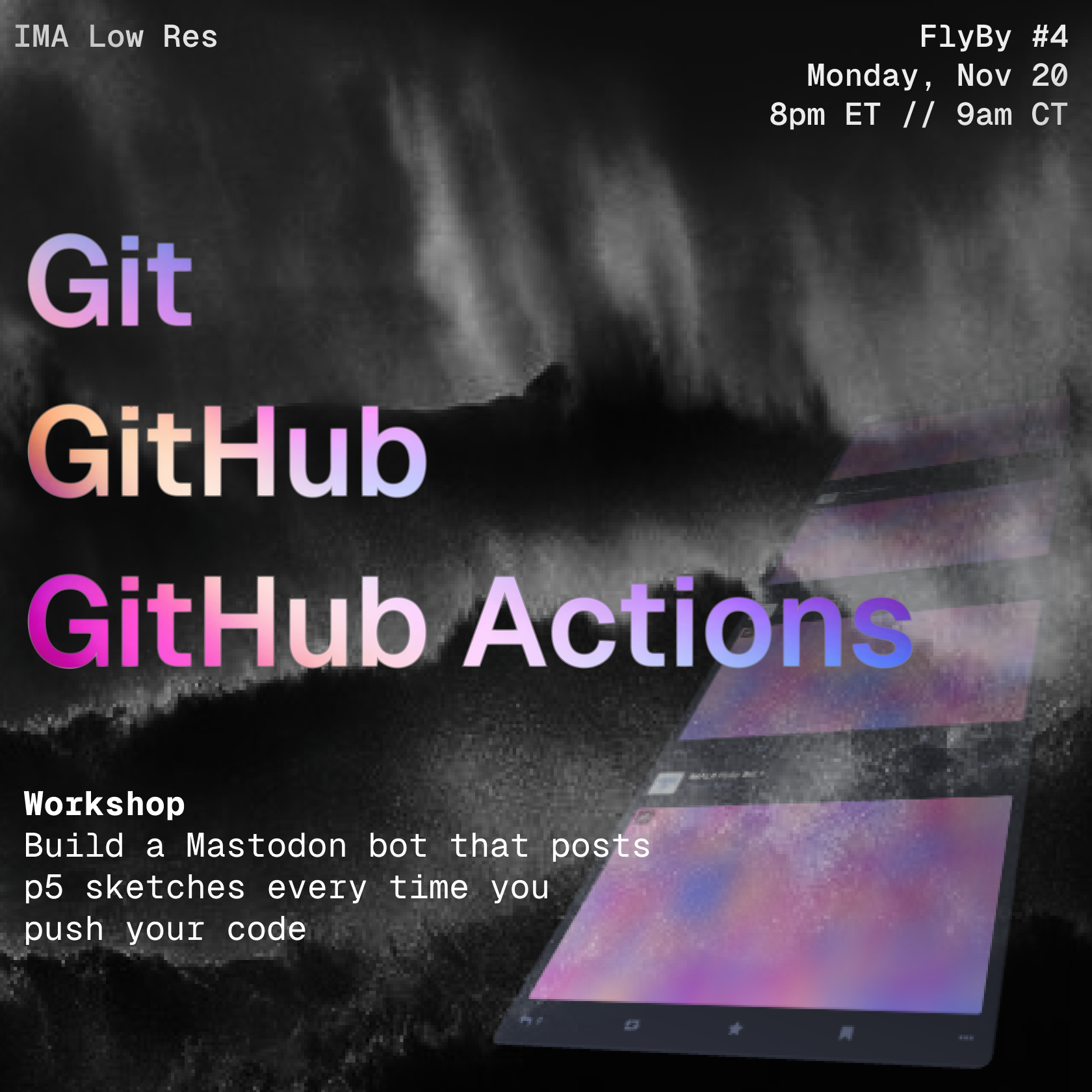
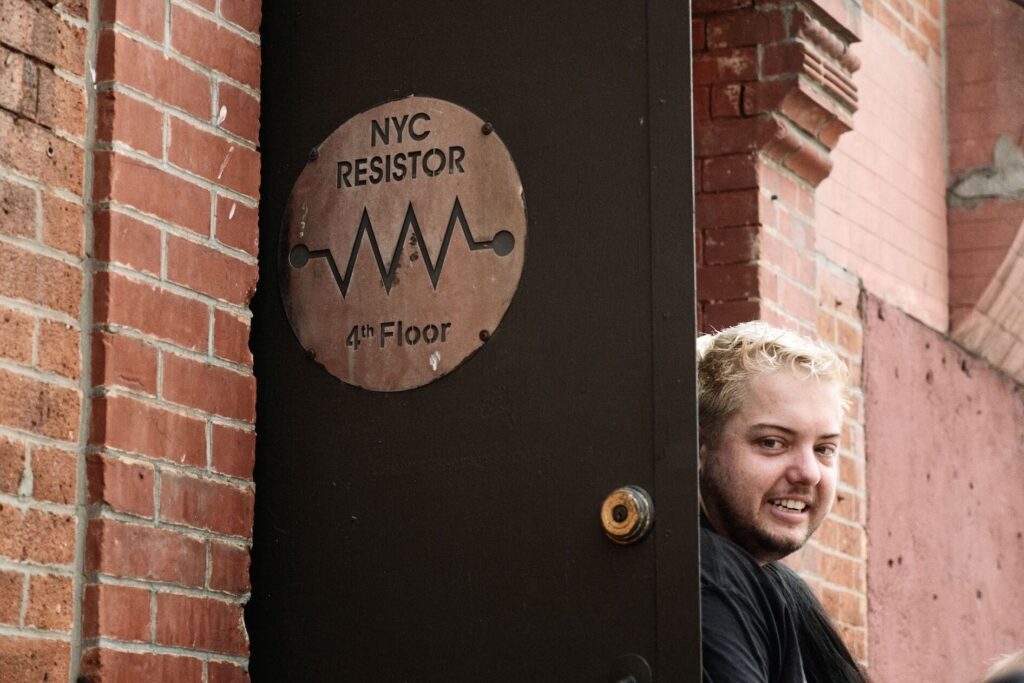
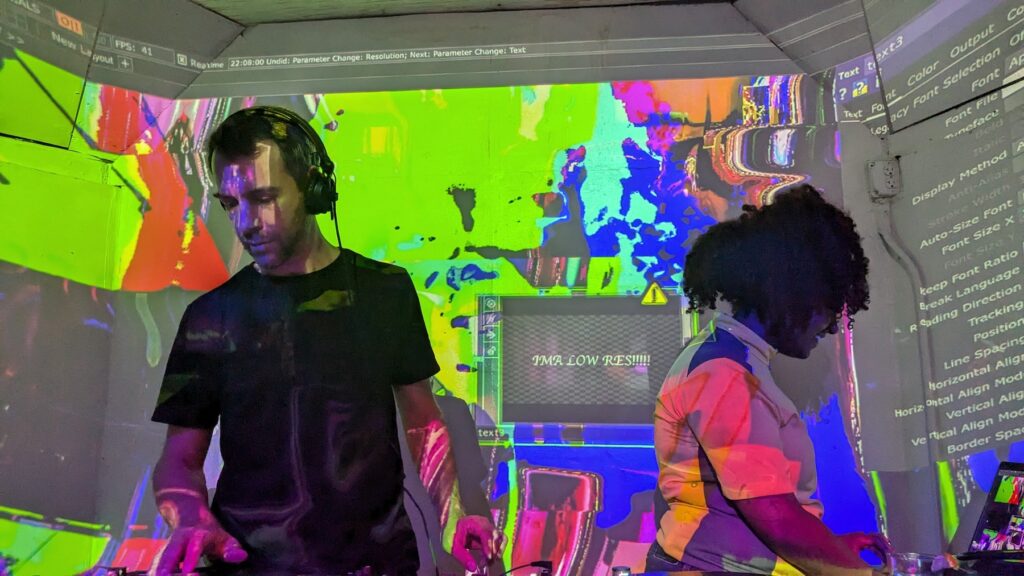
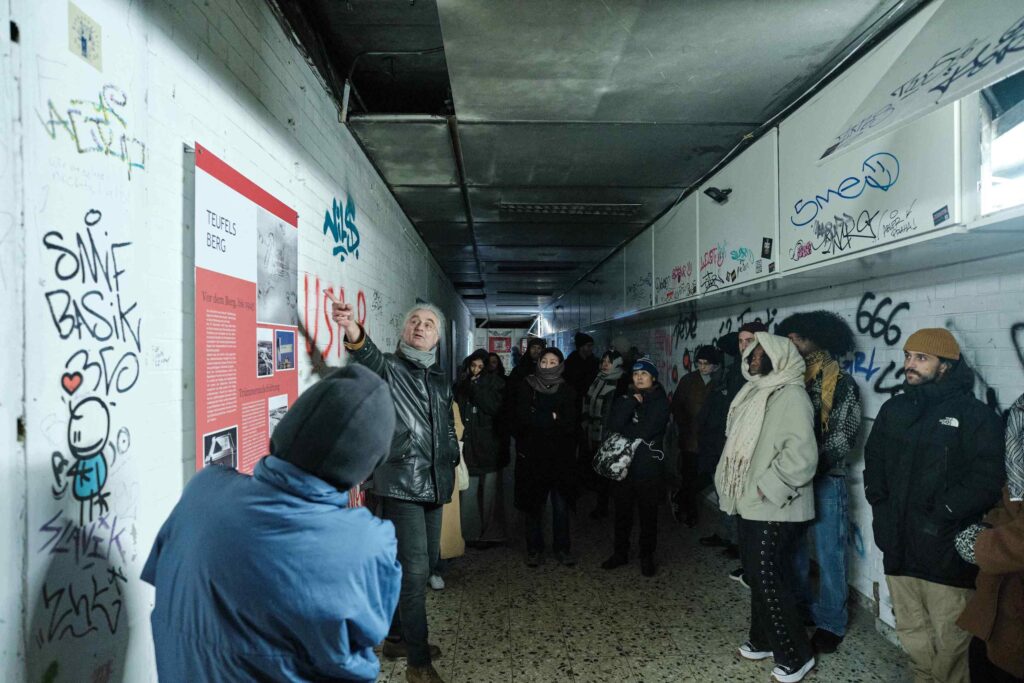
Program Events:
Fly-bys, Feedback Collective, Create-A-Thon, Show-A-Thing, Residents Talk…
Workshops:
Life Design, Research Method for Creative Work, Virtual Production…
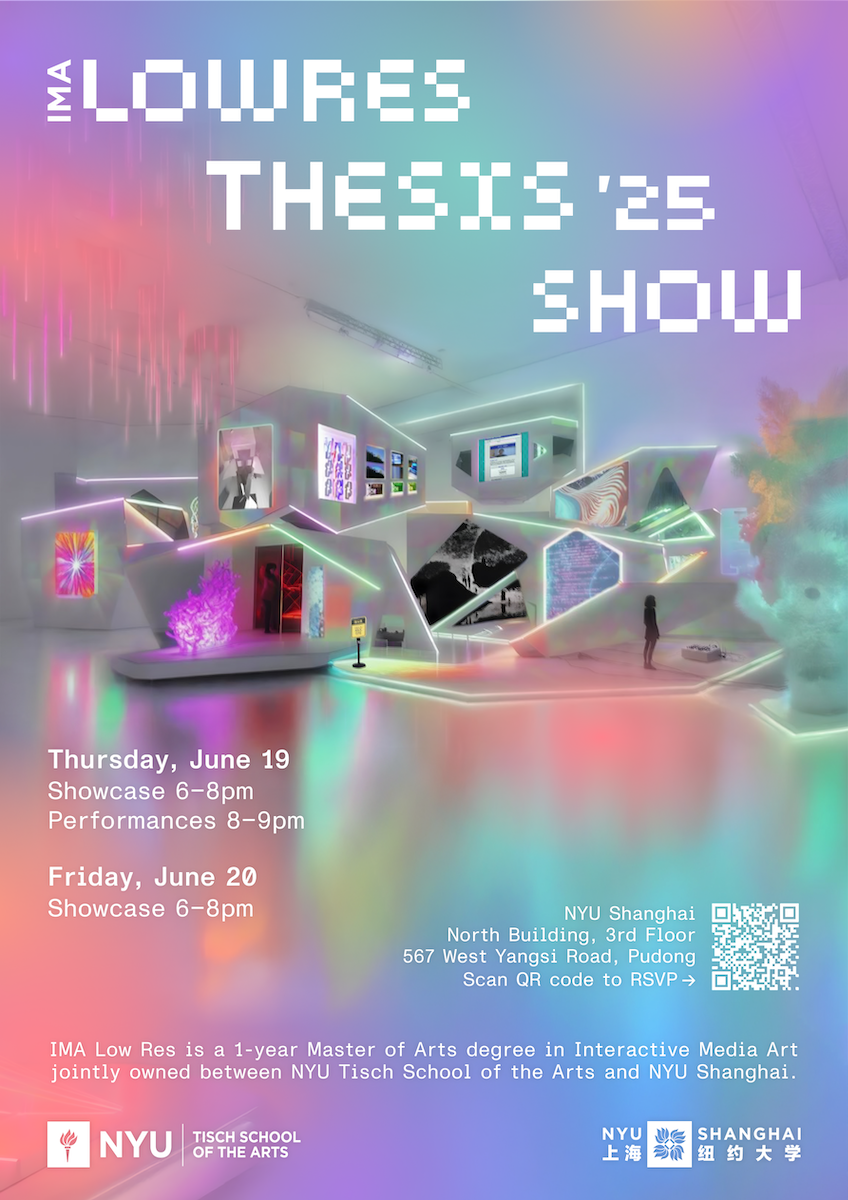
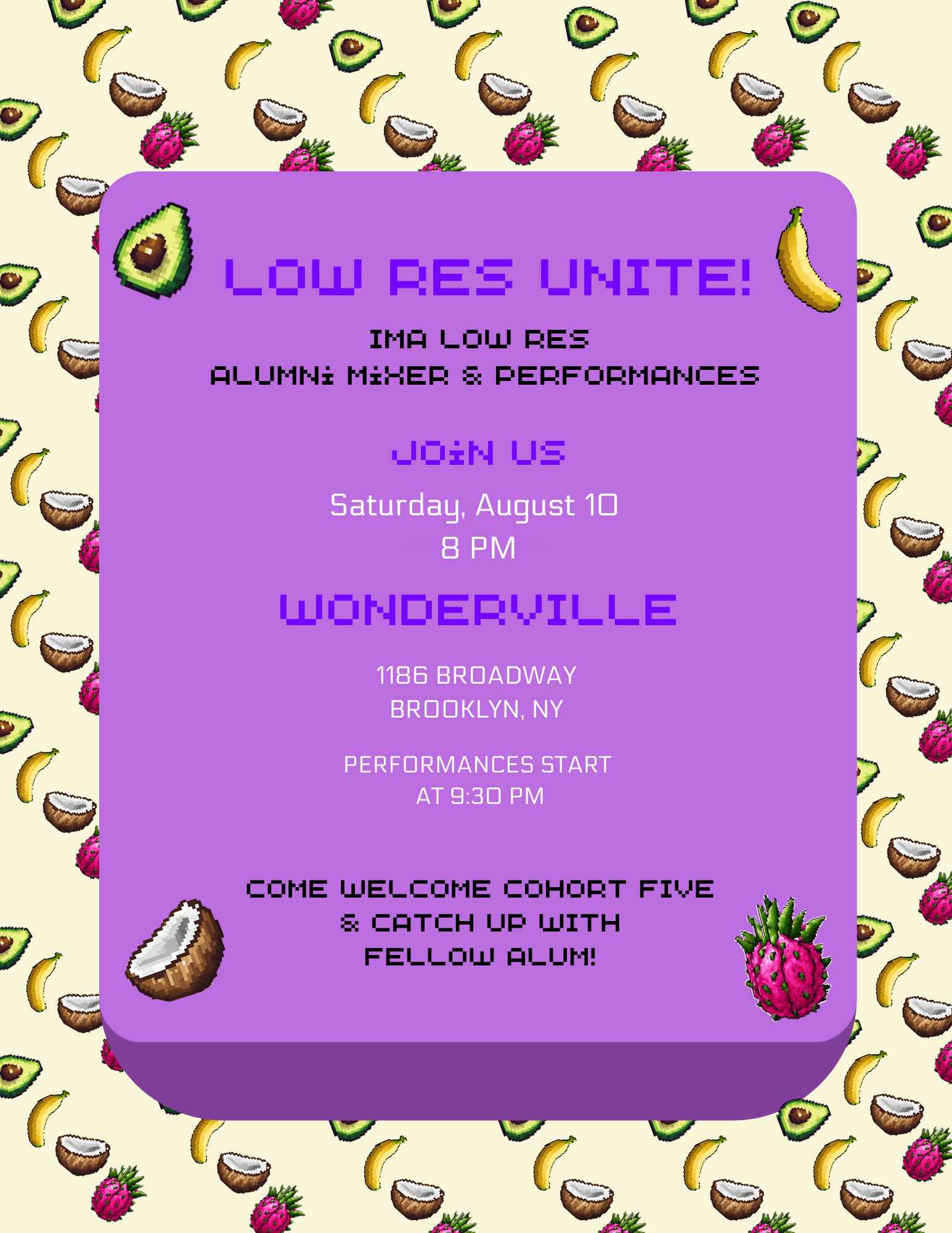
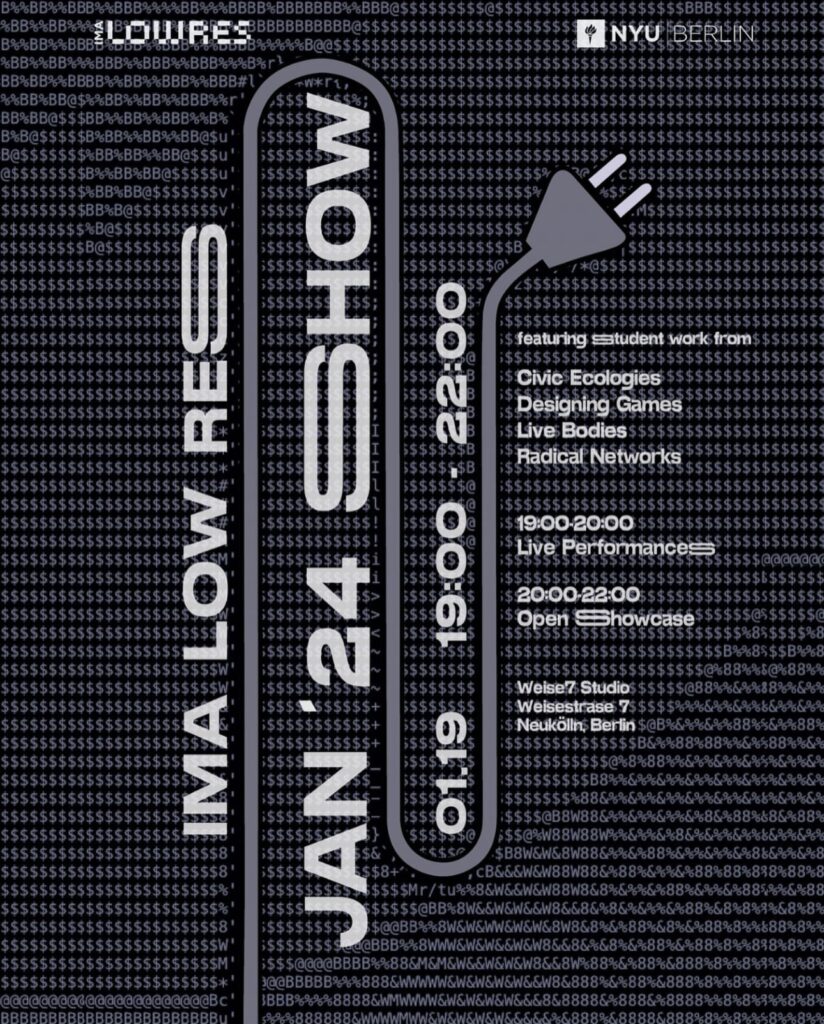
Exhibition Opportunities:
Winter Show and Spring Show with ITP/IMA, Summer Show & Tell in New York, Winter Show & Tell in Berlin, Thesis Show in Shanghai…
Site Visits:
Museum Tours at all three cities, Teufelsberg Tour in Berlin, Weekend Shenzhen Trip in China…
Student Work
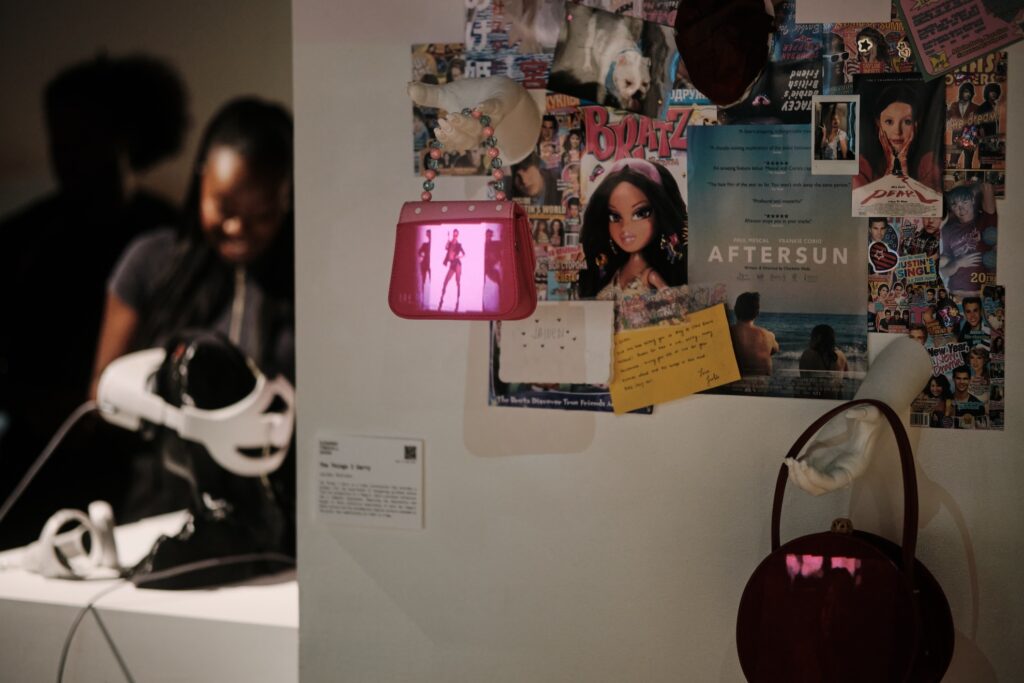
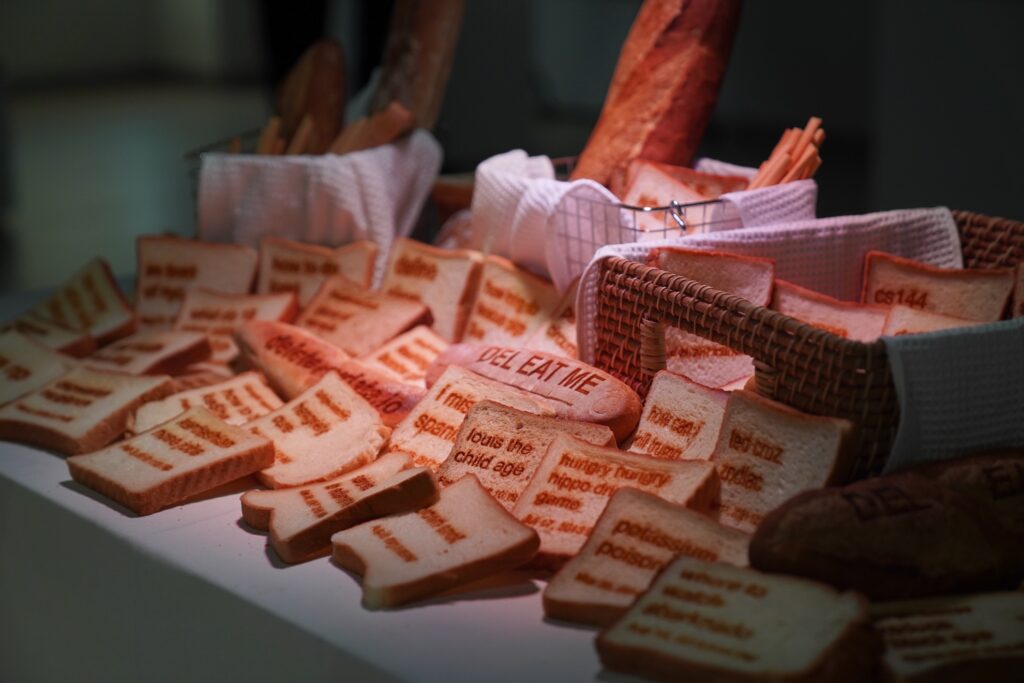
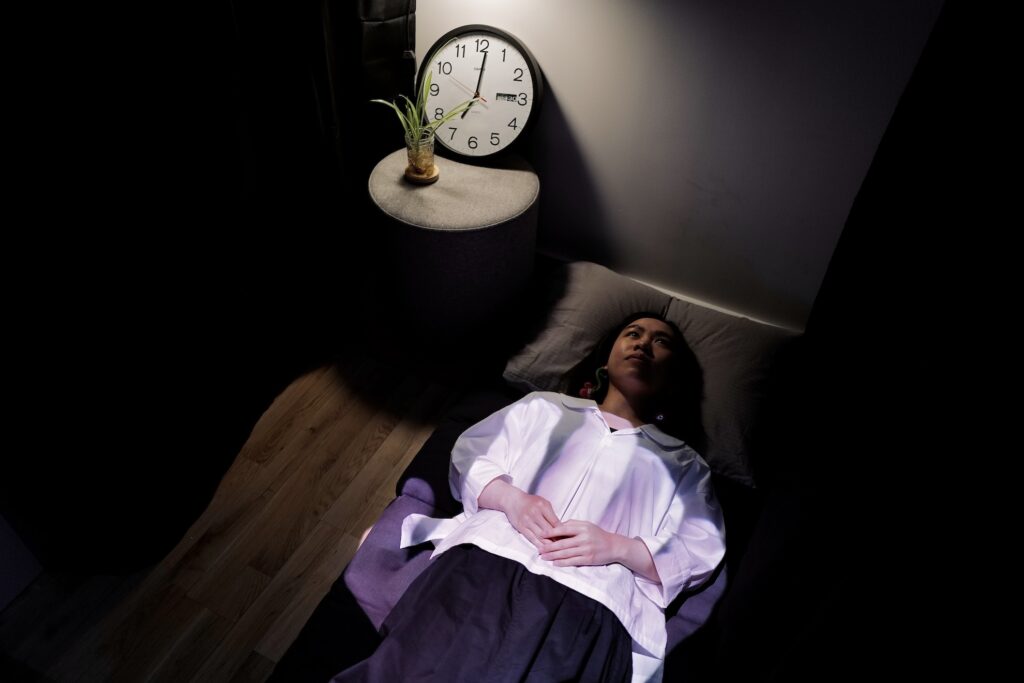
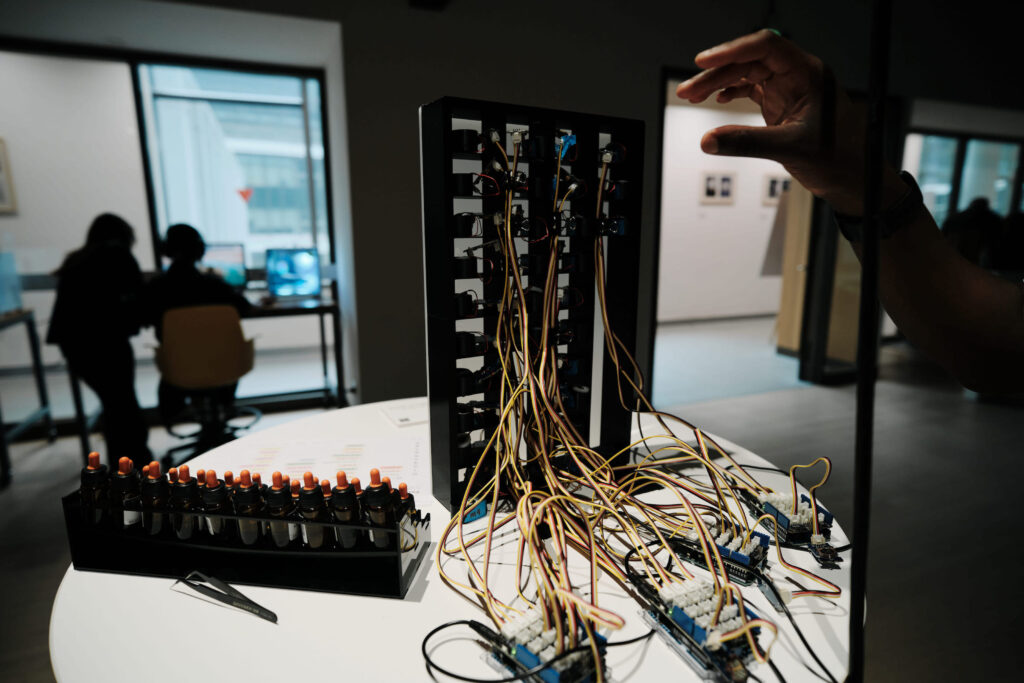
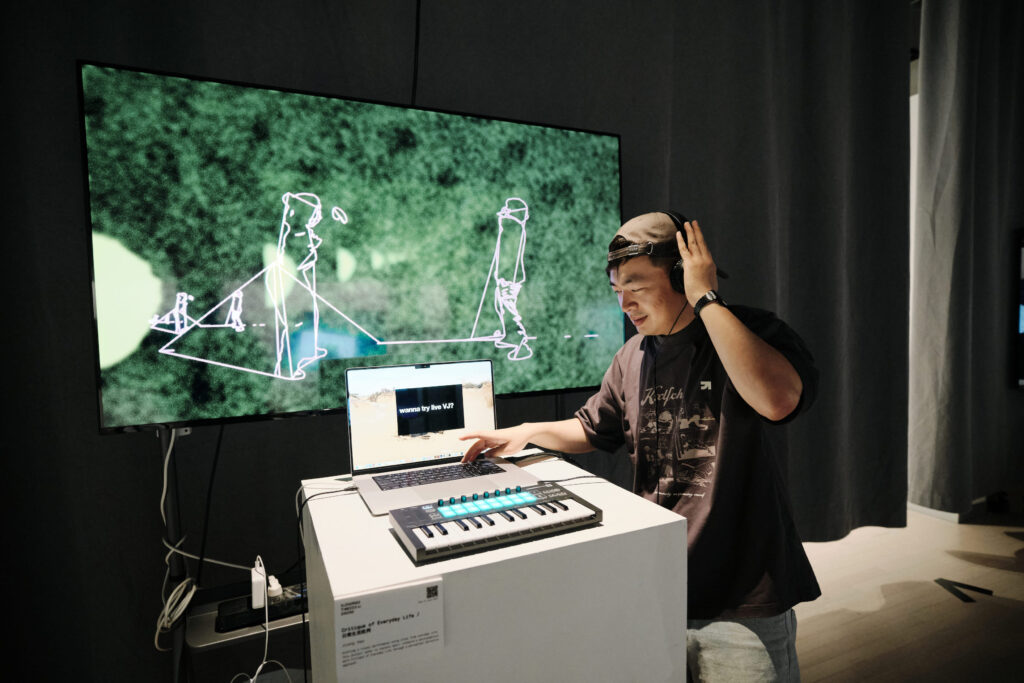
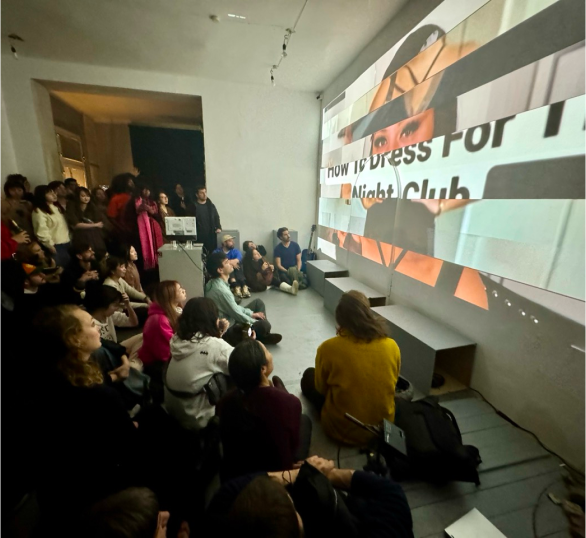
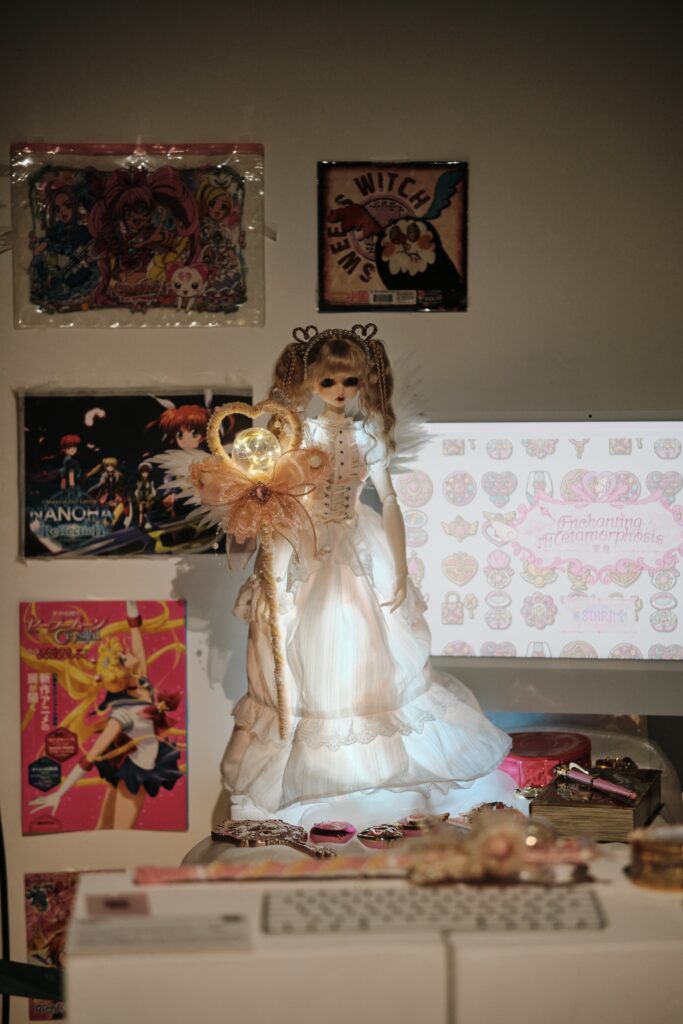
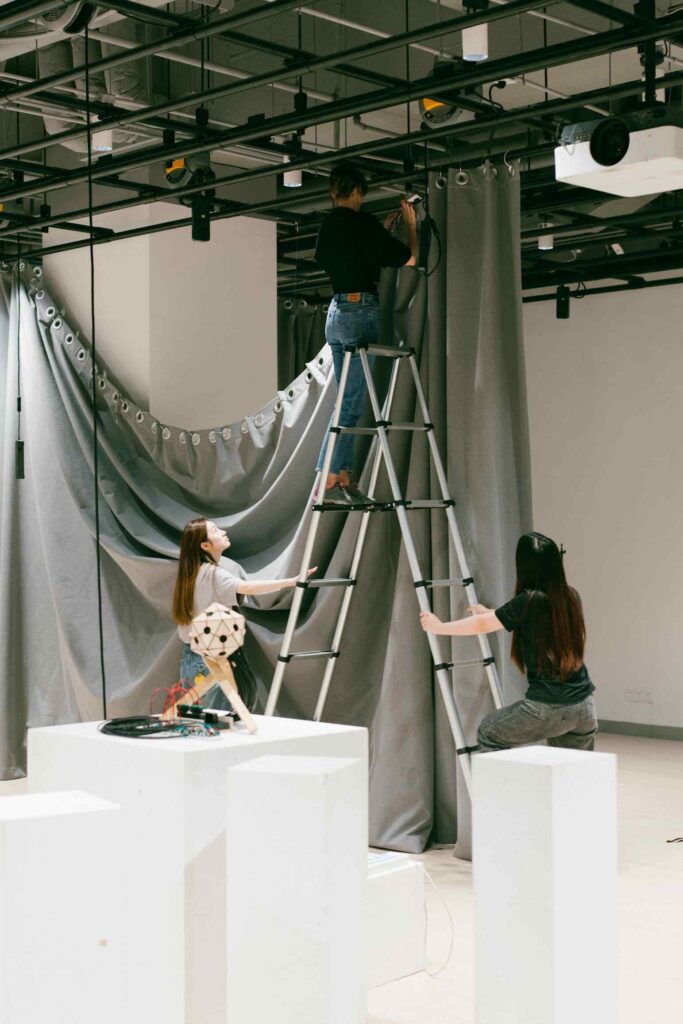
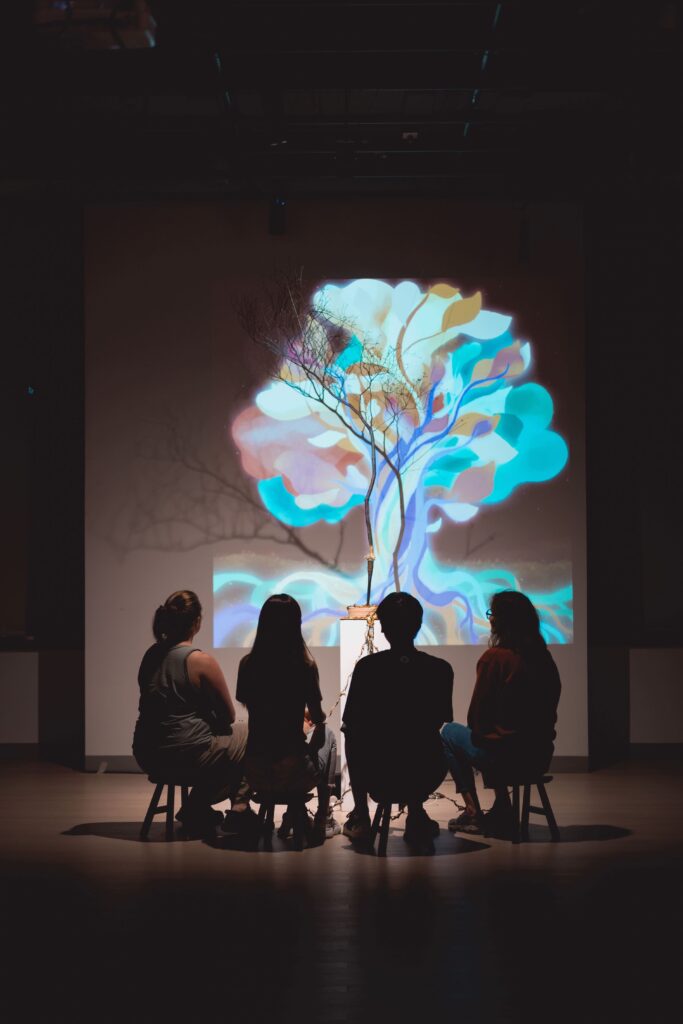
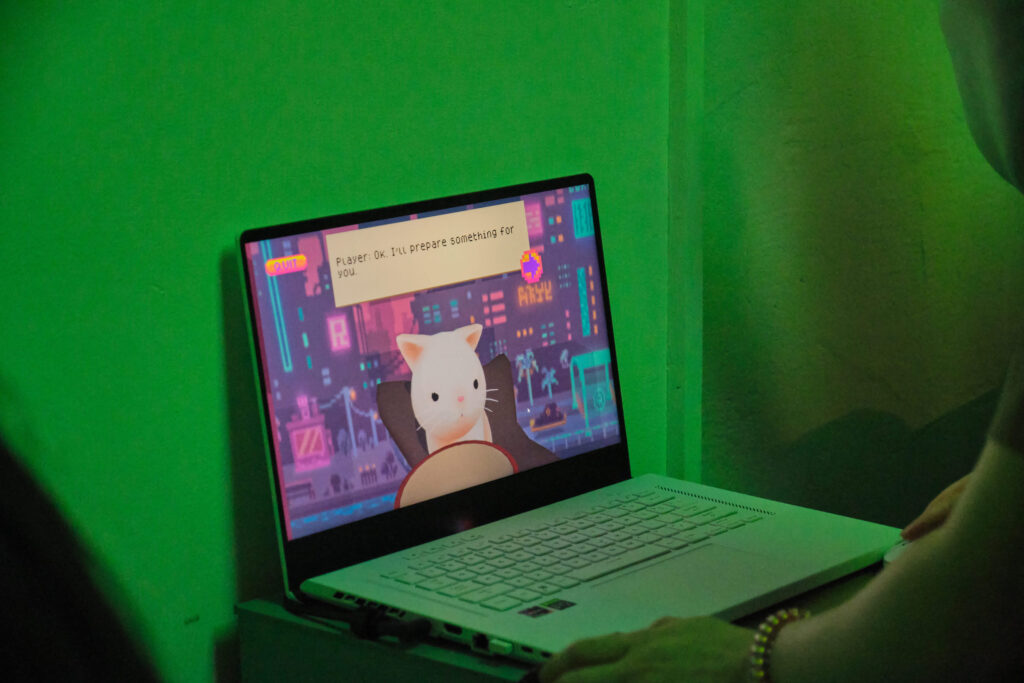
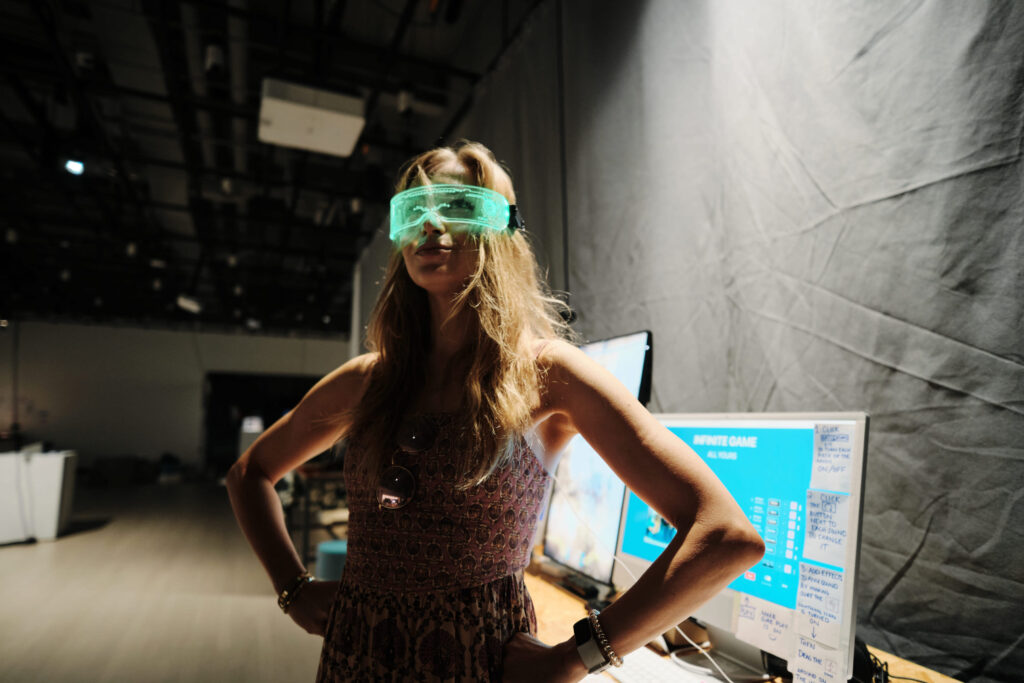
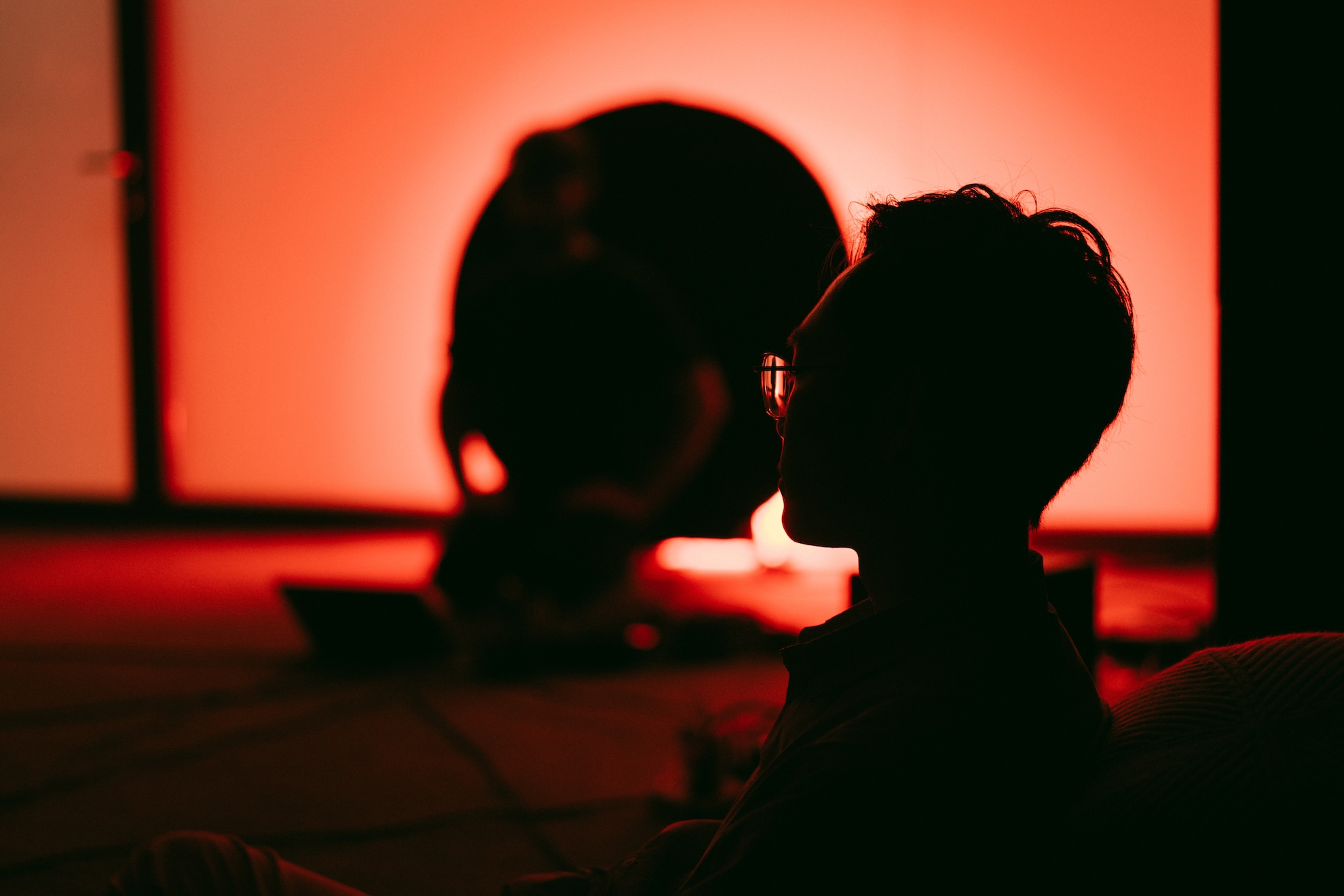
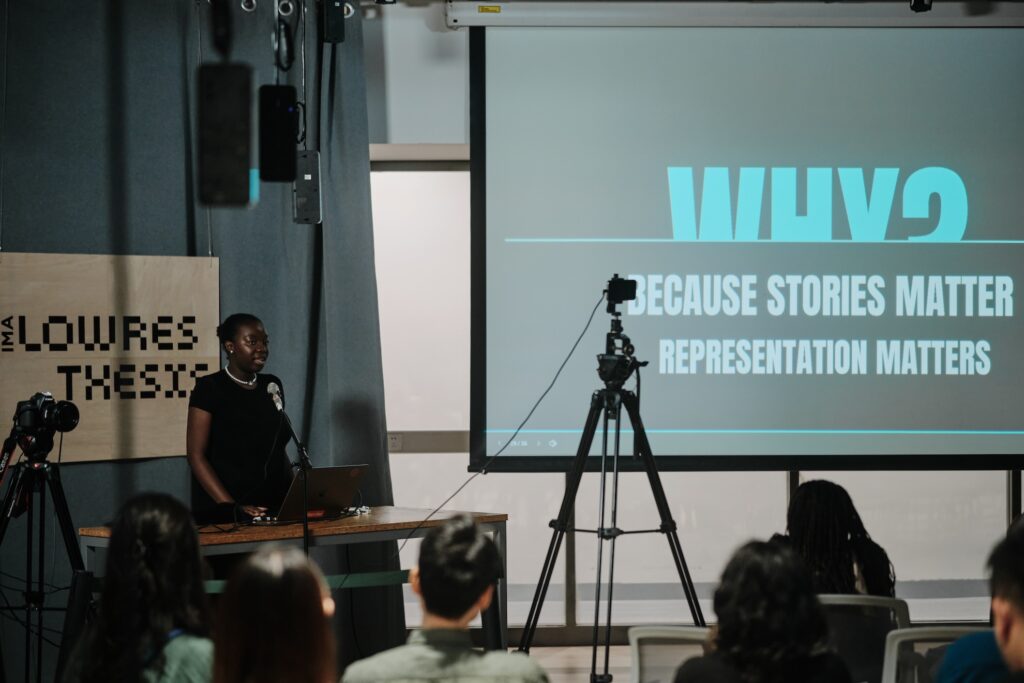
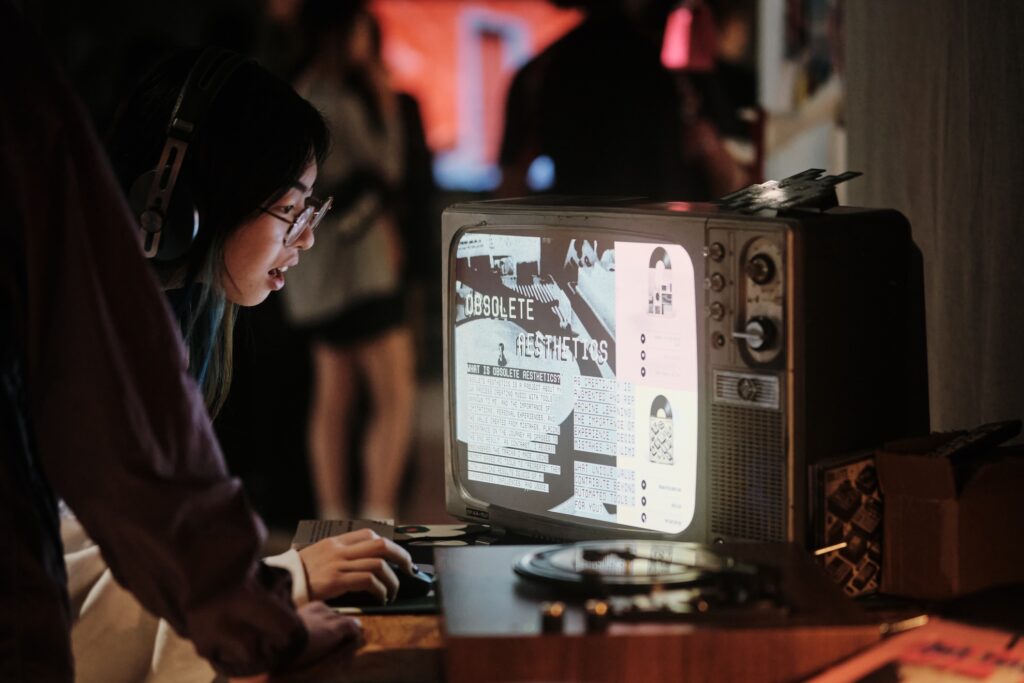
Student’s Thesis Archives

